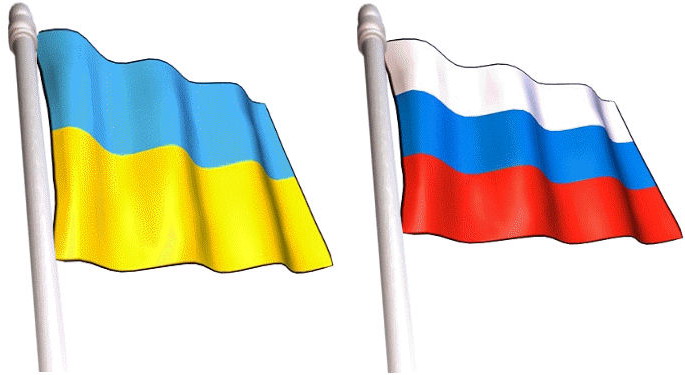Possible breakthrough in new Russia-Ukraine gas standoff
 Moscow/Kiev - Ukraine's government on Tuesday ordered a pair of state banks to pay off a massive debt owed Russia, raising hopes of a breakthrough in a tense standoff between Kiev and the Kremlin over energy, and with European natural gas supplies hanging in the balance.
Moscow/Kiev - Ukraine's government on Tuesday ordered a pair of state banks to pay off a massive debt owed Russia, raising hopes of a breakthrough in a tense standoff between Kiev and the Kremlin over energy, and with European natural gas supplies hanging in the balance.
An order signed by Ukrainian Prime Minister Yulia Tymoshenko made public early Tuesday evening instructed a pair of Ukrainian state- owned banks to loan funds necessary to cover the debt, estimated by Ukraine at one billion dollars and by Russia at two billion dollars.
The Russian natural gas monopolist Gazprom had threatened Ukraine with a total cut-off of natural gas supplies effective the first day of 2009, if the debt were not cleared.
Europe receives roughly one-quarter of its natural gas from Russia, 80 per cent of it delivered via Ukrainian pipelines. Ukraine during a 2006 Russian natural gas cut off siphoned some of the Gazprom gas destined for Europe, causing price spikes as far away as Paris.
The Ukrainian government-run natural gas monopolist Naftohaz Ukrainy will be the beneficiary of the loans, to be offered by the state-owned Ukrainian banks Oshchadbank and Ukreksimbank, according to Tymoshenko's order.
Naftohaz owes Gazprom for gas used during November and December 2008. Ukraine would pay in full by Wednesday, said Valentyn Zeliansky, a Naftohaz spokesman, in a UT-1 television news interview.
Money paid by Naftohaz to Gazprom as per contract terms goes through a Switzerland-registered middleman company called Rusukrenergo.
The Tymoshenko government announced the loan after hours of telephone conversations between Tymoshenko and Gazprom management, Channel 5 television reported.
Gazprom had by mid-evening Tuesday not received any money and until the debt was paid in full, the situation and danger of a gas cut off was unchanged, said Sergrei Kuprianov, a Gazprom spokesman, at a Moscow press conference.
Gazprom chairman Alexei Miller earlier on Tuesday told state television news Vesti-24 that "a countdown" in negotiations to avoid the cutoffs and ensure safe flows for supplies to Europe "had ground down to mere hours," and announced his company was preparing to shut off gas supplies to Ukraine.
"If by the end of December 31, Ukraine does not make good on its debt, then there will be no basis for Gazprom to continue gas deliveries in 2009," Miller said, amid last ditch negotiations with Ukrainian officials in Moscow.
The current contract between Moscow and Kiev for gas deliveries and on-shipment to Europe expires with the New Year. The countries' negotiators were according to a Tuesday afternoon report on Ukraine's Channel 5 television still miles apart on gas pricing for 2009.
Gazprom refuses to discuss a new contract until its debt is repayed, company spokesman said Tuesday.
Gazprom management sent a letter of warning to European clients, launched a website and held regular press conferences to provide updates on the gas talks in an effort to reassure European clients.
Ukrainian negotiators in recent weeks have asked Gazprom to adjust the future price of gas downward, and accept delayed payment of the debt Kiev has already run up - terms rejected outright by the Kremlin, according to a Zerkalo Tizheden newspaper report.
Analysts say the country's crushing economic problems make it unlikely Kiev can reimburse the debt. Ukraine was recently forced to seek 14.5 billion dollars in credit from the International Monetary Fund.
Conditions applied to the money means it cannot directly be used pay for Russian gas arrears.
Gazprom spokesman Sergei Kupriyanov said Tuesday last-minute talks had turned to other possible forms of payments, such as future transit fees fees for gas to Europe.
Miller said Gazprom would ask for 418 dollars per 1,000 cubic metres from Ukraine under a new contract in 2009, if the two countries switch to market terms in gas trade. Kiev now pays 179.5 dollars per 1,000 cubic metres.
Ukrainian President Viktor Yushchenko in Saturday comments on the UT-1 television channel suggested a price of 200 dollars per 1,000 cubic metres was the maximum Ukraine could pay.
If Russia wanted Ukraine to pay international market price for gas, he said, then Russia should pay Ukraine in kind for pumping its gas through Ukrainian pipelines to European consumers.
European customers now pay a higher price for gas to Gazprom than Ukraine. Industry analysts expect the cost of gas sold by Russia to Europe to drop in coming months following the slump in global oil prices, but Ukraine and Russia differ sharply on how that expected drop should be reflected in the 2009 price of natural gas sold to Ukraine.
Oil prices respond faster to market changes because they are based on spot prices rather than long-term contracts. Gazprom, the world`s largest gas producer, reviews gas prices to market every quarter under its European contracts.
In a report Tuesday, Gazprom announced profits for its second quarter nearly tripled on higher prices and sales.
But Gazprom's shares have plunged almost 75 per cent since their peak in mid-May amid the global financial crisis. The corporation is Russia's largest and accounts for as much as 3 per cent of Russia's entire gross domestic product (GDP), according to independent analyst estimates.
The company's report said it had downgraded projections on future cash flows in response to the "deteriorated operating conditions." (dpa)